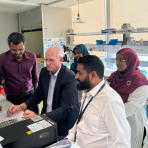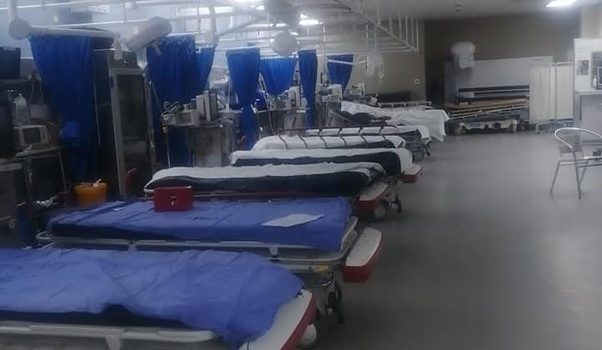By Mumta Hargovan, Leslie London & Marsha Orgill (University of Cape Town)
Alcohol is deeply entangled in the social, political and economic history of South Africa (SA). There is a high prevalence of heavy episodic drinking (binge-drinking) and related harms, including a costly burden of injuries and trauma on the public health system. However, policy processes to update national alcohol regulations have stalled.
In 2013, a bill proposing to ban alcohol advertising and sports sponsorships was drafted, but never gazetted for public comment. In 2016, an amendment to SA’s National Liquor Act (2003), including measures to limit alcohol advertising, restrict trading days and hours, and reduce outlet density was approved by Cabinet and released for public comment, but parliamentary review is still pending. Eight years later, the bill has not been processed.
Contestation between the ideals of public health and economic arguments have typically hindered policy processes. The COVID-19 pandemic offered a window into a different policy narrative.
What changed during the COVID-19 crisis?
Following the declaration of a national state of disaster in SA in March 2020, alternate policy-making structures and processes were established under the Disaster Management Act (DMA) No.57 of 2002. This legislation enabled regulations on trade to be enacted during a disaster, including the ‘suspension or limiting of the sale, dispensing or transportation of alcoholic beverages’. Despite contestation from the alcohol industry and other actors, varying degrees of restriction on alcohol sales were imposed temporarily as part the national pandemic response during 2020 and 2021.
SA was one of only a few countries, including Botswana, India, Greenland and parts of Canada, to ban alcohol sales completely at different points in time during the pandemic. In contrast, countries including Australia, China, Germany, the UK and USA introduced measures, such as online alcohol sales, to enable alcohol access. This was reported to be due to economic concerns and intense alcohol industry lobbying – the same issues which have hindered alcohol policymaking in SA for decades.
This raises the question: How did the pandemic alter the decision-making environment for alcohol regulation in SA? Through the research and in our recently published Health Policy and Planning paper we shed light on the health crisis context and discuss a number of factors at play in policy processes:
- Public health values are used to rationalise and legitimise decision-making during a health crisis, but are less influential thereafter within the context of competing economic and political priorities. The alcohol regulations were presented as an exceptional and, most importantly, temporary threat to commercial activity for the purpose of mitigating COVID-19 harms. They did not necessarily signify a stronger long-term political stance on reducing alcohol harms. The crisis does, however, open a window which can possibly influence the future policy trajectory on alcohol harm reduction.
- Perceptions of urgency of the health crisis influence the degree to which policy processes and content are transformed. In SA, a sense of urgency around the availability of hospital beds, healthcare staff and other needed resources was compounded by population health vulnerabilities to COVID-19, including a high prevalence of HIV, TB, non-communicable diseases (NCDs), poverty and malnutrition. Within this context, alcohol-related trauma gained renewed attention and understanding as a preventable public health burden which, if temporarily mitigated, could free up health system capacity to manage COVID-19 cases. This prompted a drastic shift in alcohol policy content, followed by adjustments as the perceived urgency of the crisis fluctuated over time.
- Centralisation of power in crisis contexts enables rapid and decisive policy cycles, but limits stakeholder participation. A National Coronavirus Command Council (NCCC), comprising of a relatively small group of high-level government officials, was established as the primary decision-making body for the COVID-19 response and facilitated rapid policymaking. Non-state actor networks, including the alcohol industry and public health linked organizations, responded by claiming space to participate through research and advocacy in the public arena.
- Actors may use different forms of evidence (ranging from scientific research to marketing spin) to support competing agendas in crisis contexts. State actors and the media may weigh research findings equally, regardless of the quality of scientific inquiry, sources of funding, and conflicts of interest. This created a ‘battle for evidence’ during the crisis, with the alcohol industry investing heavily in strategies to produce a counter-narrative to public health evidence.
These results have practical implications for alcohol policy that should be considered:
- The COVID-19 experience illustrates that under particular circumstances, it is possible for public health values and evidence to outcompete political and commercial influence in alcohol policy formation.
- Public awareness of the harms that could be prevented by stronger alcohol regulation is now widespread in SA, given the almost incontrovertible links that emerged between open access to alcohol and traumatic injury during the pandemic. Anecdotal evidence, such as images of an empty trauma unit at Chris Hani Baragwanath Hospital shared by healthcare workers on New Year’s morning in 2021, amplified the strength of public health evidence. This heightened awareness amongst the public and policy decision makers will be difficult to ‘spool back’ in future engagements.
- Considering the financial power of the alcohol industry to shape perceptions around alcohol regulation through paid use of the media, there is also a need to address and manage conflicts of interest in scientific and media platforms, including disclosure of alcohol industry funding.
Conclusion
Given the key role of public health evidence in supporting decision making for alcohol regulation during the crisis, we encourage continued research on alcohol harms in relation to health system capacity as well as broader social impacts. We also encourage research on knowledge translation and the dissemination of public health evidence in accessible formats. This is crucial in order to build on the public awareness generated during the crisis, challenge alcohol industry narratives and encourage public support for alcohol harm reduction.
Picture: Facebook, @ChrisHaniBaragwanath.











